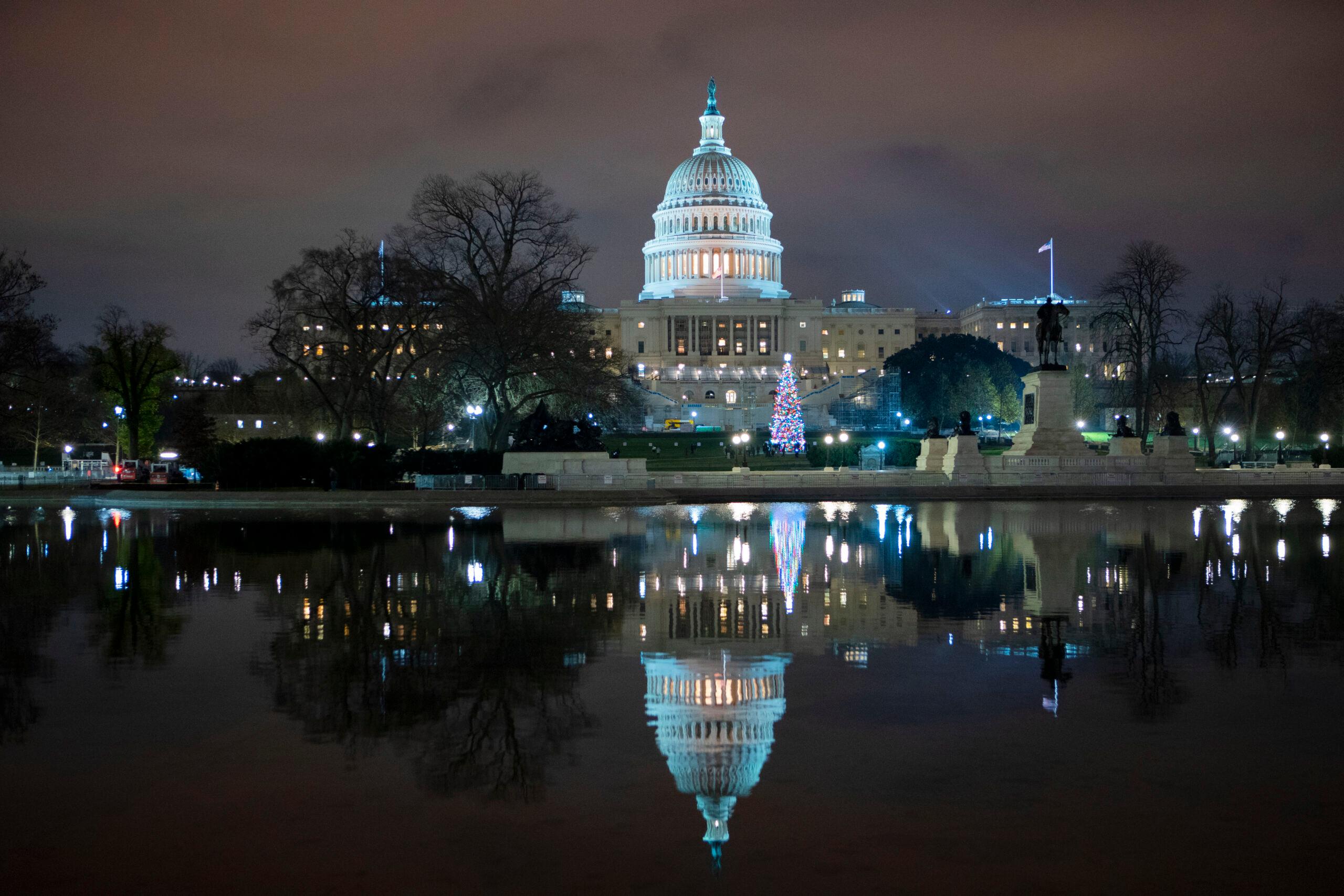
When the annual National Defense Authorization Act finally reaches President Joe Biden’s desk, it will get there without several priorities that Colorado’s members of Congress had hoped to include.
As one of the rare must-pass pieces of legislation each year, lawmakers try to attach whatever they can to the massive defense funding bill. But getting those extras all the way to the finish line isn’t easy.
In this case, when the NDAA originally passed the House it included two Colorado public lands bills — the CORE Act and the Colorado Wilderness Act — as well the SAFE Banking Act, which would allow financial institutions like banks to work with marijuana businesses in states where the drug is legal.
But when leaders in the House and Senate Armed Services committees sat down to negotiate a final bill that they hope can get through both chambers, those proposals from Colorado’s lawmakers didn’t make the cut.
“As has been the case with cannabis reforms nationally, progress takes time,” said Rep. Ed Perlmutter in a statement about the fate of the SAFE Banking Act. “My work on this bill is far from over. As Speaker Pelosi and Senate Majority Leader Schumer are aware, going forward, I plan to pursue every possible avenue to get SAFE Banking signed into law.”
Perlmutter did try to look for a silver lining, arguing that even getting the bill into the House version of the NDAA helped bring attention to the problems caused by a lack of banking access for marijuana businesses.
Colorado’s Democratic senators, Michael Bennet and John Hickenlooper, had lobbied their colleagues on the Senate Armed Services Committee to add CORE to their version of the bill, noting it would create a new National Historic Landscape designation for Camp Hale, where the 10th Mountain Division trained in World War II.
But that argument apparently didn’t move negotiators.
Rep. Diana DeGette cited the removal of her wilderness bill as a chief reason for being among the 70 House “no” votes on the final bill.
“The Senate’s decision to strip the PAW Act, which includes the Colorado Wilderness Act and seven other important public land bills, from the final version of this year’s NDAA is disgraceful,” the congresswoman said in a statement.
All three bills have passed the House as stand-alone legislation in the past, but so far none have gotten much traction in the closely divided Senate.
Three Coloradans vote no on House bill
Some Colorado-specific priorities did make it onto the final defense spending bill that passed the House on December 7. Among them is Rep. Jason Crow’s bill to allow the Global War on Terror Memorial to be built on the National Mall, a bipartisan effort he’s been working on for several years.
Crow and Republican Rep. Doug Lamborn also worked together on a provision to create a Space National Guard, and Lamborn secured a promise in the bill that the Pentagon won’t relocate U.S. Space Command out of Colorado Springs until after investigations into the decision by former President Donald Trump to move it in Alabama are completed.
The House-passed NDAA also requires the Army to finish planning for the eventual decommissioning of the Pueblo Chemical Weapons Depot.
The $768 billion bill would also give a 2.7 percent pay increase to servicemembers.
But the inclusion of those parts of the bill did not unify Colorado’s delegation in their support. The House vote on the bill split them along unusual lines — Democratic Reps. DeGette and Joe Neguse voted no, as did Republican Rep. Ken Buck. Republican Reps. Doug Lamborn and Lauren Boebert voted yes, along with Democrats Crow and Perlmutter.
“This legislation will benefit the Fifth Congressional District thanks to the concentration of space, missile defense, and new defense technologies,” Lamborn said in a statement explaining why he was pleased to vote for the bill.
Lamborn had lobbied to remove a provision from the House bill that would allow civilian law enforcement to carry out protective orders issued by military courts, including removing guns from servicemembers accused of domestic violence. Gun rights groups had decried the so-called “military red flag law” and it was dropped from the final bill.
“Defense bills should focus on defense, not include any restrictions on our Second Amendment rights or massive federal land grabs that would negatively impact Colorado,” Lamborn said in his statement.
In explaining his no vote, Rep. Neguse said he was concerned that the final House bill contained $25 billion more in discretionary defense spending than President Biden requested.
“In addition, after successfully working to add meaningful support for our wildland firefighters, including mental health services and housing stipends, to the final bill, I was deeply disappointed to see them stripped out in the Senate, among other provisions (including the CORE Act),” the statement continued. “At this consequential moment for America, as we work to crush the COVID-19 pandemic, rebuild our economy and tackle the threat of western wildfires, we must put the needs of families and communities first.”
The Senate plans to take up the final version of the NDAA this week








